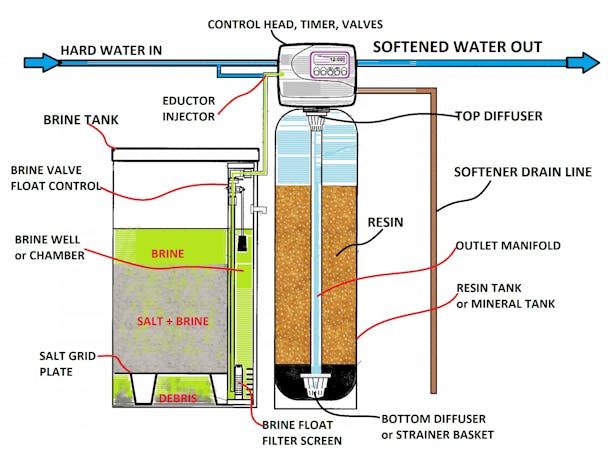A Comprehensive Guide to Water Softeners: Do You Really Need One?
Hard water is a common problem for many households, but not everyone is familiar with the solution: a water softener. This device, which removes minerals like calcium and magnesium from your water, can significantly enhance the quality of the water in your home. In this guide, we'll dive deep into what water softeners do, the benefits they offer, and how to determine if you need one.
What is Hard Water?
Hard water contains high levels of calcium and magnesium. While not harmful to health, these minerals can cause various problems in your home. They are responsible for scale buildup in pipes and appliances, which can lead to inefficiencies and increased maintenance costs. Hard water also interferes with soap’s ability to lather, affecting cleaning tasks and personal care.
Benefits of a Water Softener
Improved Appliance Lifespan: The minerals in hard water can build up in appliances like dishwashers, washing machines, and water heaters, reducing their efficiency and lifespan. A water softener helps prevent this buildup, extending the life of these appliances.
Enhanced Water Quality for Bathing and Washing: Soft water makes soap lather better, which means cleaner skin, softer hair, and less soap usage. It also prevents the formation of soap scum on tiles and glass.
Reduced Housework: Without mineral deposits, you won’t have to spend as much time cleaning faucets, shower doors, and other fixtures.
Types of Water Softeners
Ion Exchange Softeners: The most common type, ion exchange softeners, work by replacing minerals like calcium and magnesium with sodium or potassium. They are highly effective but require regular maintenance, including refilling salt.
Salt-Free Softeners: These use a mechanical filter to remove minerals rather than replacing them with sodium. This type is less effective in very hard water areas but is preferred by those looking to reduce sodium intake.
Magnetic or Electronic Softeners: These devices claim to alter the electromagnetic properties of the minerals so they don’t stick to surfaces. While less conventional and with varied reviews, they offer a maintenance-free solution.
Do You Need a Water Softener?
Signs You Might Need a Water Softener:
- Frequent plumbing repairs: If you are often fixing clogged pipes or leaking valves, it might be due to scale buildup from hard water.
- Spotty and dull dishes and glassware: Hard water can leave your dishes and glassware looking spotty and dull even after cleaning.
- Dry skin and flat hair: If you notice your skin and hair are persistently dry, it might be due to hard water.
- High soap and detergent usage: Hard water reduces the effectiveness of soap and detergents, requiring you to use more to achieve the same cleaning power.
How to Choose the Right Water Softener
Choosing the right water softener depends on your household water usage, the hardness of your water, and your budget. It’s advisable to get your water tested to understand the level of hardness. Also, consider the size of your household and the space available for installing a water softener.
Conclusion
A water softener can be a beneficial investment for many households. It not only enhances the quality of your water but also protects your appliances and makes cleaning easier. If you're experiencing signs of hard water, a water softener might just be what you need.
For more information on water softeners or to get a consultation on the best system for your home, contact us at Maas and Sons. We’re here to ensure that your water is soft, clean, and pleasant for all your household needs.



